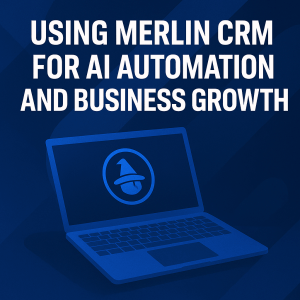A well-designed website is the cornerstone of your online presence, and finding the right webmaster or development team to bring your vision to life is essential. Let’s go through some of the key factors to consider when selecting the right webmaster or development team for your website.
When looking for a webmaster or development team, it’s important to assess their technical expertise. Make sure they are proficient in the latest web technologies, coding languages (Such as: HTML, CSS, PHP, JavaScript), and frameworks relevant to your project. A skilled webmaster will be able to optimize your website for design, speed, performance, and user experience.
Reviewing the webmaster’s portfolio and/or past projects is a great way to gauge their experience and capabilities. Look for projects similar to yours in terms of scope and complexity. A webmaster with a diverse portfolio demonstrates adaptability and proficiency in handling various types of projects. Combined with effective communication, which is key to a successful web development project. The webmaster or development team should be able to clearly understand your vision, goals, and requirements. Additionally, they should provide regular updates on the progress of the project and be responsive to your feedback and questions.
Make sure the webmaster or team fully understands search engine optimization (SEO) that is crucial for driving organic traffic to your website. A knowledgeable webmaster or development team should have a good understanding of SEO best practices and be able to implement them throughout the website design and development process.
Here are some key questions you can ask a webmaster to assess their understanding of SEO along with their possible answers. Since everyone’s point of view or knowledge may be different, the answers will most likely vary, but these are here to guide you.
- Can you explain what SEO (Search Engine Optimization) is and why it’s important for websites? SEO is the practice of optimizing websites to improve their visibility and ranking on search engine results pages (SERPs). It’s important because it helps websites attract organic (unpaid) traffic, increase visibility, and reach their target audience.
- How do you approach keyword research for website content? Keyword research involves identifying relevant search terms and phrases that users are likely to enter into search engines when looking for information related to your website’s content. Tools like Google Keyword Planner or SEMrush can be used to find keywords with high search volume and low competition.
- What on-page SEO factors do you consider when optimizing web pages? On-page SEO factors include optimizing meta tags (title tags, meta descriptions), using relevant keywords in headings and content, optimizing images with descriptive alt text, ensuring a user-friendly URL structure, and improving website speed and mobile responsiveness.
- How do you handle meta tags, including title tags and meta descriptions? Meta tags, such as title tags and meta descriptions, are crucial for SEO. The title tag should accurately describe the content of the web page and include relevant keywords. Meta descriptions provide a brief summary of the page’s content and can influence click-through rates from search engine results.
- What strategies do you use for building backlinks to a website? Building backlinks involves acquiring links from other websites to your own. Strategies include creating high-quality content that others want to link to, guest posting on relevant websites, reaching out to industry influencers for collaborations, and participating in online communities and forums.
- Can you explain the importance of website speed and mobile optimization for SEO? Website speed and mobile optimization are important for SEO because search engines prioritize fast-loading, mobile-friendly websites. This improves user experience and reduces bounce rates, contributing to higher rankings on SERPs. Optimizing images, using responsive design, and minimizing code and scripts can help improve website speed and mobile performance.
- How do you monitor and measure the performance of SEO efforts? Monitoring SEO performance involves tracking key metrics such as organic traffic, keyword rankings, backlink profile, and user engagement metrics like bounce rate and time on page. Tools like Google Analytics, Google Search Console, and third-party SEO platforms can provide insights into website performance and areas for improvement.
- Have you ever dealt with SEO penalties, and if so, how did you address them? SEO penalties can occur when a website violates search engine guidelines, such as using black hat SEO tactics or engaging in spammy link-building practices. Addressing penalties involves identifying and removing low-quality or spammy content, disavowing toxic backlinks, and submitting a reconsideration request to the search engine.
- What are your thoughts on the role of content quality and relevance in SEO? Content quality and relevance are crucial for SEO because search engines aim to deliver the most relevant and valuable content to users. High-quality content that is informative, well-written, and relevant to user intent is more likely to rank well on SERPs and attract organic traffic.
- Can you share examples of successful SEO campaigns or improvements you’ve implemented in the past? Successful SEO campaigns involve a combination of technical optimization, content creation, and strategic link building. Examples include improving website speed and mobile responsiveness, creating comprehensive and authoritative content, optimizing meta tags and on-page elements, and building a diverse backlink profile from reputable sources.
Before enlisting the services of a webmaster or development team, it’s crucial to have an open discussion about your budget and the time frame for the project. Gain a thorough understanding of the associated costs and the projected timeline for project completion. Keep in mind that entrusting your project to a skilled webmaster or development team is a direct investment in the long-term success of your online venture.
Moreover, it’s imperative to recognize that a website is not a one-time endeavor; rather, it necessitates continuous support and maintenance to uphold its optimal functionality. Therefore, it’s advisable to engage in conversations regarding post-launch support and ongoing maintenance with the selected webmaster or development team. Considering the option of signing a maintenance contract can provide assurance that your website will receive consistent updates and security measures, ensuring its sustained performance and resilience.
Don’t hesitate to ask for references or read reviews from past clients. Hearing about other clients’ experiences can give you valuable insights into the webmaster’s work ethic, professionalism, and the quality of their work.
To hire a programmer or webmaster/development team is not a difficult task but rather an important step in creating a successful online presence for your business. By considering factors such as technical expertise, portfolio, communication skills, SEO knowledge, budget, timeline, support, and maintenance, you can ensure that your website is in capable hands. Remember, a well-designed website is not just a digital storefront, but a powerful tool that can help you reach your business goals and make money online. With the right webmaster or development team by your side, the possibilities are endless. Choose your webmaster or development team wisely, and watch your online presence thrive.
Feel free to reach out to me and my team any time through this website. We’re here to assist you!
Article source: Online Magic Book
By Andree Ochoa








